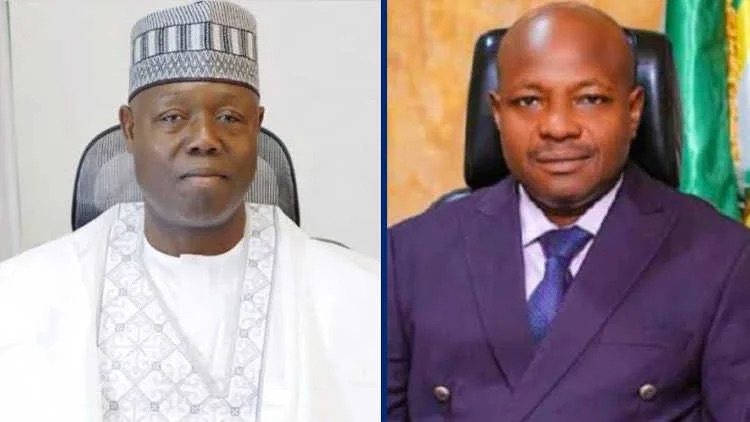The recent disengagement of the former Directors-General of the two top security agencies in Nigeria came at a very critical time. In the new appointment, President Bola Tinubu replaced Ahmed Rufai with Ambassador Mohammed Mohammed in the National Intelligence Agency (NIA) while Mr. Adeola Ajayi replaced Yusuf Bichi in the Department of State Services (DSS). The President expects the new helmsmen to reposition the two agencies for better results and to bring their wealth of experience to bear in tackling the security challenges bedevilling the country.
Expectations of other Nigerians are also high. It is obvious that Nigeria is under siege. Every zone in the country has pockets of non-state actors endangering the lives of the people. They go by different names ranging from terrorists to bandits, kidnappers, herdsmen and unknown gunmen.
The nationwide hunger protests earlier in August tagged #EndBadGovernance further challenged Nigeria’s security situation. The protests were such that a number of people were killed and properties worth millions of naira destroyed. Regrettably, some protesters waved the Russian flags across different parts of the North. In most cases, our security agencies had no answer to some of these security breaches.
Unfortunately, the DSS, at some point, appeared excessively politicised and became a willing tool in the hands of some politicians. It was in the habit of raising alarms about alleged plots to destabilise the country whenever things turned against some political interests. It raised such alarms in 2019, 2020, 2021, 2022 and 2023. In March last year, it claimed it confirmed plots by some political actors to install an illegal interim government in Nigeria. The agency’s spokesman, Peter Afunanya, said the plots were being planned through protests and court orders to block the transition of power to the next government. He warned that those organizing to thwart democracy in the country should retract from what he called their devious schemes and orchestrations.
Afunanya merely echoed a statement by the then Director, Public Affairs of Tinubu and current Minister of Aviation, Festus Keyamo, who had alleged of plots to truncate the transition process and install an interim government. He had written a petition to the DSS, imploring the secret police to arrest and prosecute the presidential candidate of the Labour Party in the 2023 election, Mr Peter Obi, and his running mate, Dr. Yusuf Datti-Ahmed, for alleged incitement and treasonable felony.
The new DG of the DSS should avoid this route. He should not dance to the tune of his appointers or become partisan in the discharge of his duties. The tasks ahead for him and Mohammed are enormous. They should focus more on their jobs. They should emulate some advanced countries which do not joke with intelligence in security matters. When Al-Qaida leaders, Osama bin Laden, was terrorizing the entire world, the United States (US) tracked him through intelligence and later eliminated him. Our security agencies should beef up intelligence and deploy technology in fighting insecurity.
Good enough, the two leaders have gathered a lot of experiences on the job. Since joining the NIA in 1995, Mohammed has had an illustrious career in the Foreign Service. A 1990 graduate of Bayero University, Kano, Mohammed was the head of the Nigerian Mission to Libya. He had served in North Korea, Pakistan, Sudan, and the State House, Abuja.
On his part, Ajayi has over three decades of experience in intelligence gathering and security management. He joined the service in 1990 as a cadet officer, and rose through the ranks to become the State Director of the DSS in Bauchi, Bayelsa, Enugu, Kogi and Rivers. He has received training both locally and internationally. He later rose to become the Assistant DG of the Service.
The roles of the two agencies are well cut out for them. Created by the military government of Ibrahim Babangida in June 1986, the NIA has the onerous task of overseeing foreign intelligence and counterintelligence operations.
The DSS is responsible for domestic intelligence. Its main role is to ensure internal security and counter threats to the security and stability of the country. It is charged, among others, with prevention and detection of any crime against Nigeria’s internal security; and prevention, detection and investigation of such threats as terrorism, espionage, separatist agitations, sabotage and subversion. Established in 1948 as the ‘E’ Department (Special Branch) in the Office of the Inspector-General of Police, the agency underwent transformations in 1976, during the military regime of Olusegun Obasanjo, and in 1986 during the military regime of Ibrahim Babangida.
We believe that the leadership change will bring new impetus to combating insecurity. The two Directors-General should show exemplary leadership and direct their subordinates to apply standard operational procedure in their duties. We congratulate them on their new appointment and implore them to patriotically discharge their duties.
